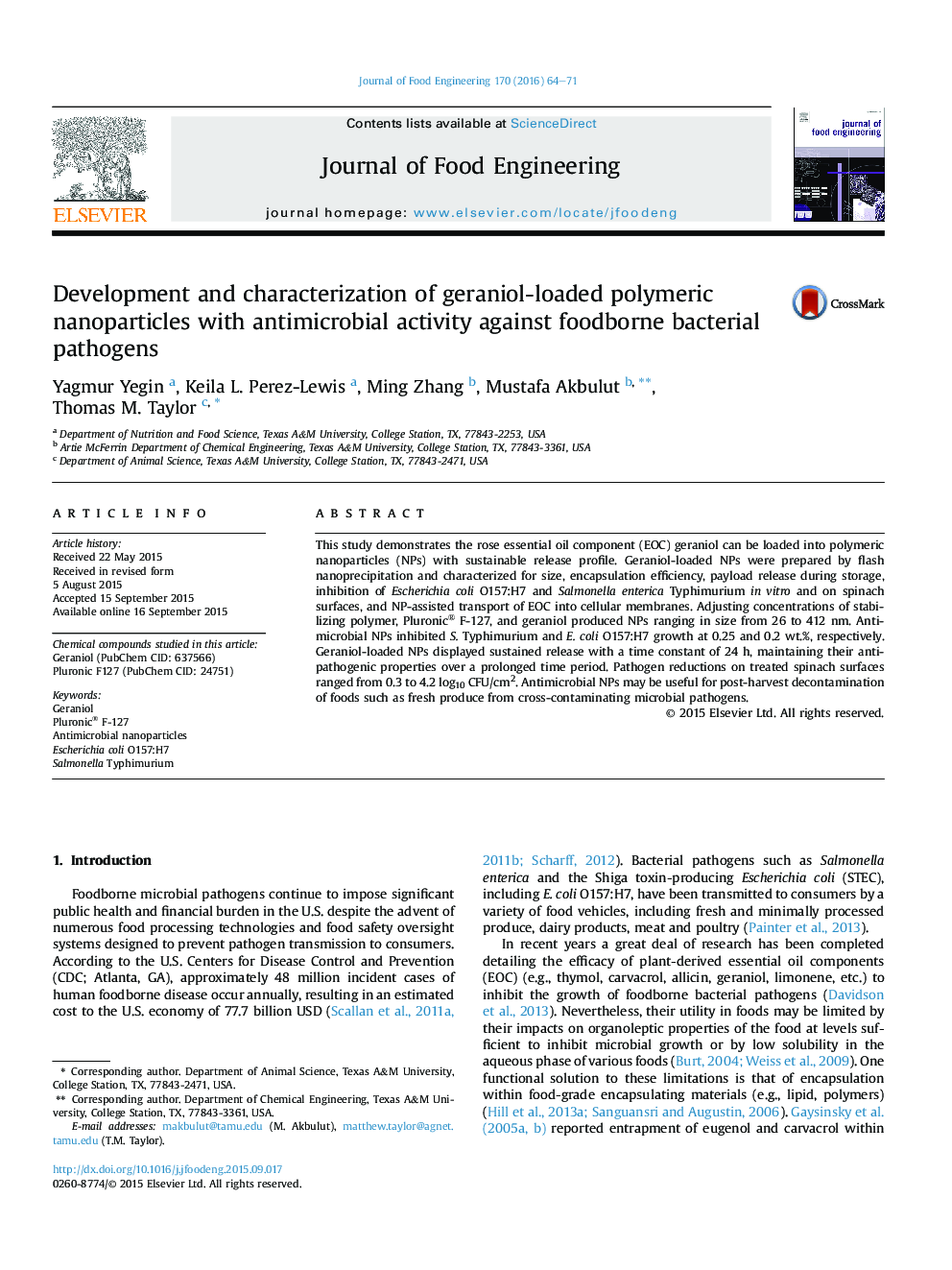| Article ID | Journal | Published Year | Pages | File Type |
|---|---|---|---|---|
| 222822 | Journal of Food Engineering | 2016 | 8 Pages |
•Pluronic® F127 nanoparticles were loaded with essential oil component geraniol.•Highly homogenous nanoparticles ranging from 26 nm to 412 nm could be prepared.•Polymeric nature of NPs enabled geraniol release over 24 h at room temperature.•Antimicrobial nanoparticles inhibited foodborne pathogens on spinach surfaces.
This study demonstrates the rose essential oil component (EOC) geraniol can be loaded into polymeric nanoparticles (NPs) with sustainable release profile. Geraniol-loaded NPs were prepared by flash nanoprecipitation and characterized for size, encapsulation efficiency, payload release during storage, inhibition of Escherichia coli O157:H7 and Salmonella enterica Typhimurium in vitro and on spinach surfaces, and NP-assisted transport of EOC into cellular membranes. Adjusting concentrations of stabilizing polymer, Pluronic® F-127, and geraniol produced NPs ranging in size from 26 to 412 nm. Antimicrobial NPs inhibited S. Typhimurium and E. coli O157:H7 growth at 0.25 and 0.2 wt.%, respectively. Geraniol-loaded NPs displayed sustained release with a time constant of 24 h, maintaining their anti-pathogenic properties over a prolonged time period. Pathogen reductions on treated spinach surfaces ranged from 0.3 to 4.2 log10 CFU/cm2. Antimicrobial NPs may be useful for post-harvest decontamination of foods such as fresh produce from cross-contaminating microbial pathogens.
